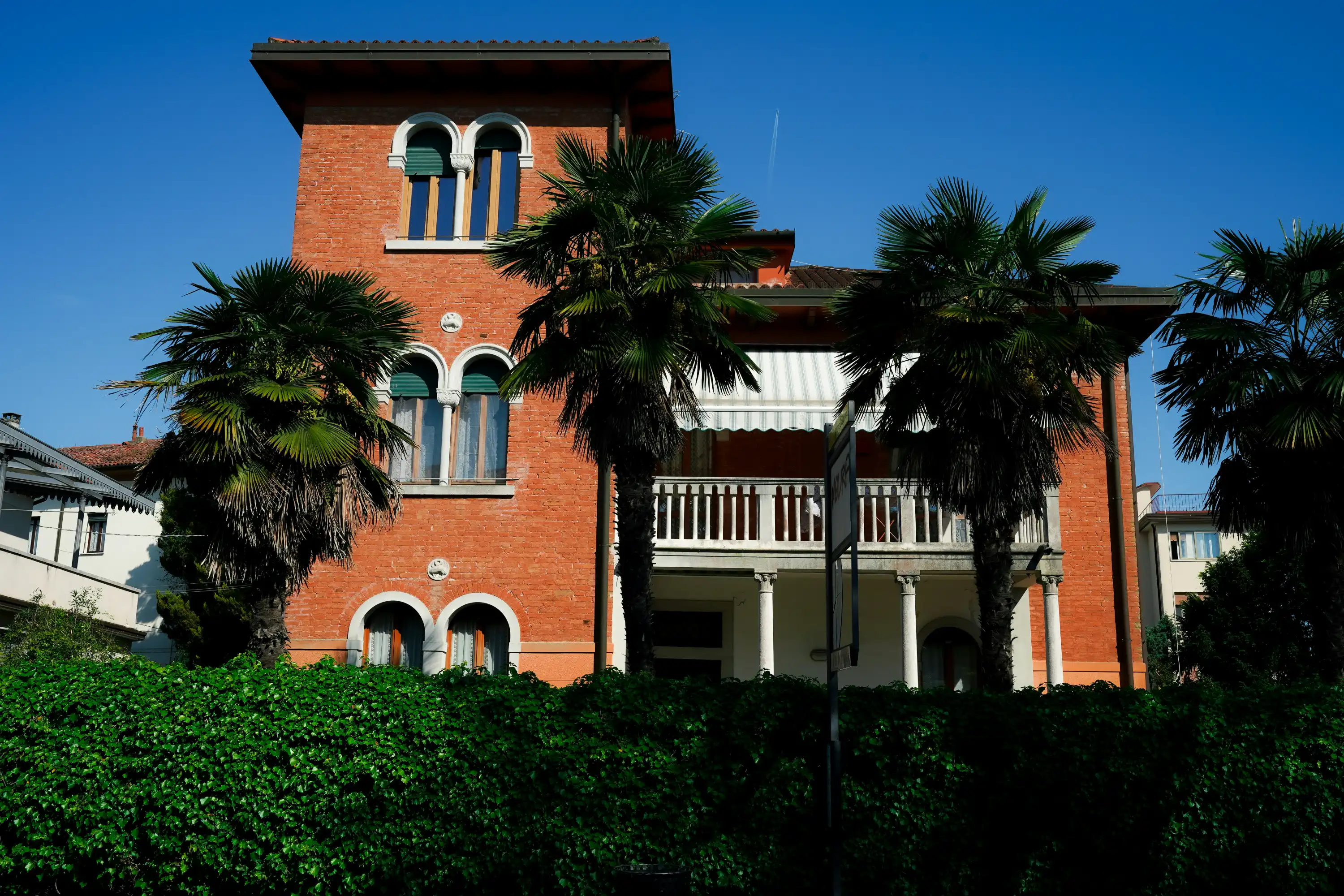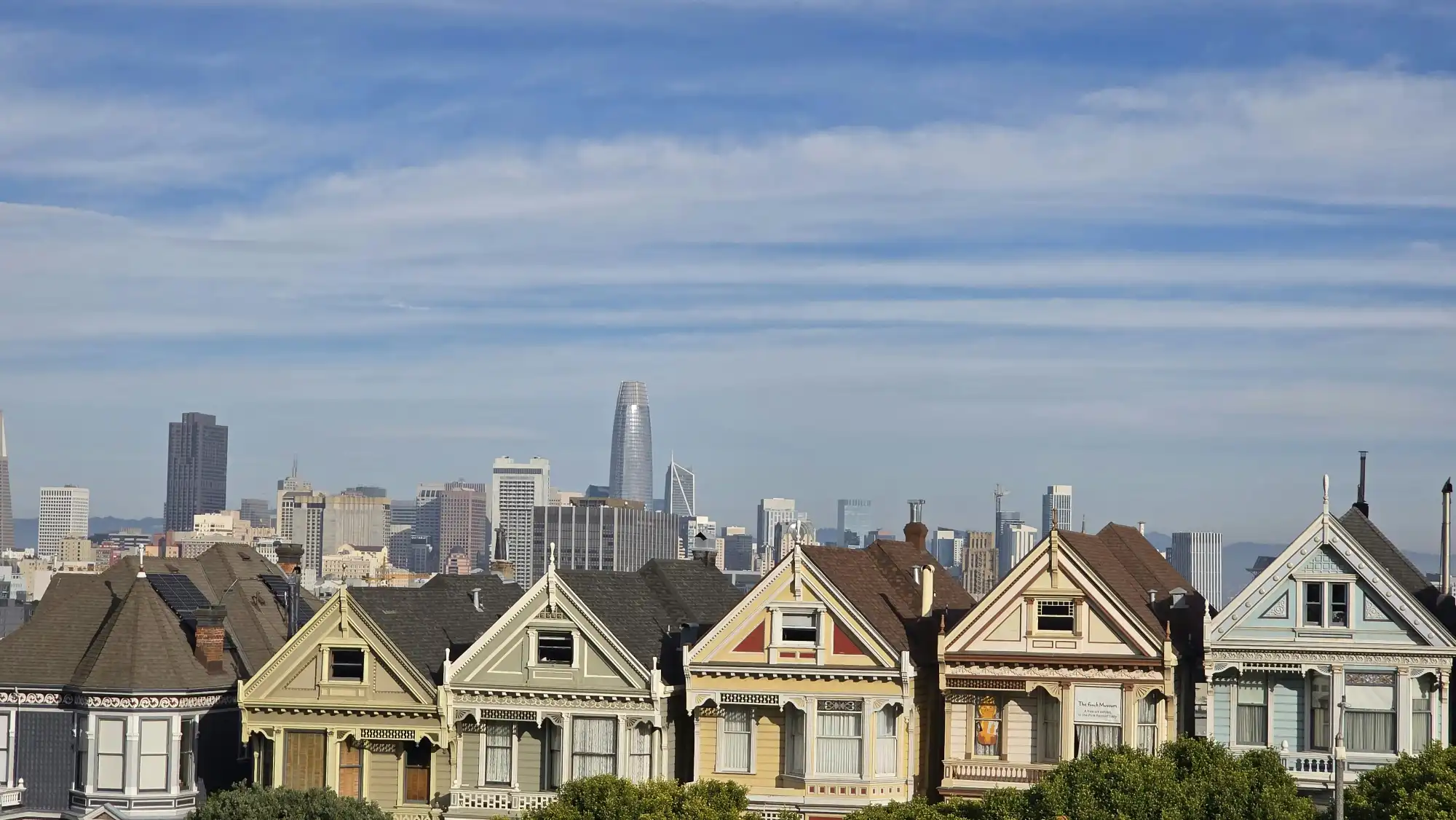The Dallas-Fort Worth metroplex has become one of America's hottest real estate markets, attracting millions of annual visitors for business, entertainment, and leisure. With this surge in tourism, short-term rentals (STRs) have attracted investors seeking higher returns than traditional long-term rentals. The promise of premium nightly rates and flexible income streams is appealing, but with shifting regulations and an increasingly competitive market, many investors are exploring strategies to increase Airbnb occupancy rates to maximize their investment potential.
Is a short-term rental a good investment in Dallas right now? The answer isn't a simple "yes" or "no"; it's in the numbers. Success in the Dallas STR market requires more than just buying a property and listing it on Airbnb. It demands a deep understanding of market dynamics, regulatory compliance, operational costs, and guest experience management—factors that apply to Texas Airbnb investment profitability across the state.
In this analysis, we'll break down the profit potential of Dallas Airbnb investments, examine the true costs beyond your mortgage, navigate the regulatory landscape, and explore strategies for maximizing returns. As Texas-based STR specialists at Surge, we've helped dozens of investors build profitable, hands-off rental portfolios across the Lone Star State, and we're here to share the insights that separate successful investors from those who struggle.
Why Dallas Attracts Travelers and STR Investors
Dallas is a major economic powerhouse, home to 24 Fortune 500 companies including AT&T, Southwest Airlines, and Texas Instruments. This concentration creates a steady stream of business travelers who prefer short-term rentals over hotels. The city's diverse economy, which spans technology, finance, healthcare, and energy, ensures consistent demand across industries year-round.
Beyond business travel, Dallas offers a range of entertainment and cultural attractions that drive year-round leisure tourism. The city's appeal creates multiple demand drivers for Dallas vacation rental properties:
- Major Sports Venues: AT&T Stadium (Dallas Cowboys), American Airlines Center (Mavericks and Stars), Globe Life Field (Rangers), and FC Dallas
- Convention & Business Events: The Kay Bailey Hutchison Convention Center hosts hundreds of events annually, bringing thousands of attendees seeking nearby accommodations.
- Cultural Districts: The Arts District, Deep Ellum, Bishop Arts District, and West End
- Annual Events: State Fair of Texas, music festivals, corporate conventions, and sporting events create seasonal demand spikes.
The city's neighborhoods offer unique attractions for different traveler segments. Uptown appeals to young professionals with its walkable urban lifestyle and proximity to business districts. Knox/Henderson draws visitors seeking upscale dining and boutique shopping. Lower Greenville attracts those looking for local culture and nightlife. This diversity allows investors to target specific guest demographics based on their property's location and positioning.
This consistent, multi-faceted demand creates the foundation for a potentially profitable Dallas vacation rental market. However, demand alone doesn't guarantee success. The real opportunity lies in understanding how to capture and monetize that demand.
Crunching the Numbers: The Profit Potential of a Dallas Airbnb
Key Metrics for STR Investors
Successful short-term rental investors track more than just nightly rates on booking platforms. To evaluate Dallas Airbnb profitability, you need to understand three critical performance metrics:
- Average Daily Rate (ADR) is the average rental revenue for an occupied room on a given day. This metric reflects your pricing power and market positioning.
- Occupancy Rate: The percentage of occupied nights out of total available nights in a period. High occupancy indicates strong demand and effective marketing.
- Revenue Per Available Room (RevPAR) is the key metric for investors. It is calculated by multiplying ADR by Occupancy Rate. RevPAR measures total revenue generation across your entire calendar, regardless of room occupancy.
What is Typical Dallas STR Performance?
According to Q4 2023 AirDNA data, a well-managed 2-bedroom property in a desirable Dallas neighborhood achieves a 65-80% occupancy rate. Average Daily Rates vary by location and property quality, ranging from $150 for basic properties in secondary locations to $300+ for premium listings in prime areas like Uptown or Bishop Arts District.
Properties in high-demand neighborhoods with professional management and quality amenities often see ADRs of $200-250. Combined with occupancy rates of 70-75%, this translates to a RevPAR of $140-190 per night. Over a month, this performance generates gross revenues of $4,200-5,700 for a typical 2-bedroom unit.
However, these numbers can vary based on seasonality, local events, and property management. The State Fair of Texas in October, major sporting events, and peak summer travel can drive ADRs 40-60% above baseline rates for well-positioned properties.
Sample Investment Scenario: A Hypothetical Dallas Property
Let's examine a simplified profit and loss statement for a hypothetical 3-bedroom, 2-bathroom house in a desirable Dallas neighborhood to make these numbers tangible. This analysis assumes professional management and quality furnishings to command premium rates.
Gross Rental Revenue: $6,500 (Based on $270 ADR @ 75% Occupancy)
Expenses:
- Mortgage (PITI): ($2,800) (Principal, Interest, Taxes, Insurance) - Varies greatly
- Management Fee (15%): ($975) - Professional management with dynamic pricing
- Utilities & Wi-Fi: ($350)
- Cleaning & Consumables: ($500) (Varies with turnover)
- Maintenance/Repair Fund (5%): ($325) (Essential for unexpected issues)
Total Monthly Expenses: ($4,950)
Net Operating Income (NOI): $1,550 - This is your pre-tax cash flow
This scenario shows potential monthly cash flow of $1,550, about 24% of gross revenue as net operating income before taxes. It illustrates that nearly 38% of gross revenue goes to operational costs excluding the mortgage. This highlights why many investors underestimate the true cost of STR operations and the value of professional management in maximizing revenue and efficiency.
The numbers reveal why property selection is crucial. A property with a $3,500 mortgage payment instead of $2,800 reduces monthly cash flow to $850, significantly impacting overall returns and investment viability.
Understanding the Full Cost of an STR Investment
Many new investors focus on mortgage payments when evaluating STR ROI Dallas potential, but successful operators know additional costs can affect profitability. Understanding these expenses upfront is crucial for accurate investment analysis and long-term success.
The Upfront Investment: Getting Your Property "Guest-Ready"
The down payment and closing costs are just the start of your financial commitment. Transforming a residential property into a bookable, guest-ready STR requires significant additional investment in several key areas:
- Design & Furnishing: Creating an attractive, functional space requires quality furniture, bedding, kitchen equipment, and decor. Expect to invest $20,000-$40,000+ for a professionally designed 2-3 bedroom property that can command premium rates and earn 5-star reviews.
- Professional Photography & Videography: Your listing photos are your primary marketing tool. Professional photography typically costs $500-1,500 and can increase booking rates by 30% or more compared to amateur photos.
- Linens & Towels: You'll need 3-4 complete sets of high-quality linens and towels to ensure smooth turnovers and maintain guest satisfaction during peak booking periods.
- Kitchen & Home Essentials: Outfitting your property with guest amenities requires careful planning and significant upfront investment.
- Permitting & Licensing Fees: Initial permitting costs can range from hundreds to thousands of dollars, depending on your property's location and compliance.
Ongoing Expenses Impacting Your Bottom Line
Once operational, successful STR management involves recurring costs that impact your monthly cash flow and profitability:
- Property Management Fees: Professional management companies charge 15-25% of gross revenue for comprehensive services including pricing optimization, guest communication, cleaning, and maintenance.
- Platform Fees: Booking platforms like Airbnb and Vrbo charge host service fees of 3-5% per reservation. For busy properties, this totals $200-400+ monthly.
- Repairs & Maintenance: Higher guest turnover means more wear and tear. Budget 5-8% of gross revenue for ongoing repairs, from plumbing to appliance replacement.
- Landscaping & Pest Control: In Texas, maintaining curb appeal and preventing pest issues requires regular professional services.
- Higher Insurance Premiums: Standard homeowner's insurance doesn't cover short-term rental activities. Specialized STR insurance typically costs 25-50% more than traditional policies.
- Hotel Occupancy Taxes (HOT): State and local occupancy taxes must be collected from guests and remitted to tax authorities. This adds administrative complexity and reduces net revenue.
Navigating Dallas Short-Term Rental Regulations
It is critical for your investment’s legal viability and profitability to understand and comply with Dallas short-term rental regulations. The regulatory landscape has evolved significantly, creating opportunities and restrictions for STR operators.
Current Dallas STR Ordinances
In 2023, the Dallas city council implemented comprehensive STR regulations that restrict where these properties can operate. The current ordinance prohibits short-term rentals in single-family residential zoning districts, limiting legal operations to commercial and mixed-use zones. This restriction has reduced the inventory of compliant properties while increasing profitability for legally operated STRs.
Properties in compliant zones must obtain city registration and meet operational requirements. The ordinance established buffer zones around schools and residential areas, limiting new STR operations. These restrictions created a more exclusive market for compliant properties, benefiting operators who can navigate the regulatory requirements.
Several legal challenges to the ordinance are ongoing, and regulations may continue to evolve. This uncertainty makes it crucial to work with knowledgeable professionals who stay current on regulatory changes and ensure ongoing compliance.
Key Compliance Obligations for Owners
Property owners in permitted zones must meet specific requirements to operate legally:
- Registration & Permitting: All STR operators must register with the city and obtain a Short-Term Rental Permit. This involves property details, proof of insurance, and compliance documentation. Permits must be renewed annually and can be revoked for violations.
- Hotel Occupancy Tax (HOT): Operators must collect and remit state (6%) and local HOT taxes from guests to authorities monthly or quarterly. Failure to comply can result in penalties and interest charges.
- Life Safety Requirements: Properties must meet basic safety standards including working smoke detectors in all bedrooms and common areas, fire extinguishers, carbon monoxide detectors where required, and clearly marked emergency egress paths.
The High Cost of Non-Compliance
Operating an illegal STR in Dallas carries severe financial and legal risks that can quickly destroy investment returns. The city actively enforces STR regulations through complaint investigations and proactive monitoring of booking platforms.
Non-compliance penalties include fines up to $2,000 per day per violation, potential criminal charges for repeat offenders, and forced closure of illegal operations. Major booking platforms like Airbnb and Vrbo regularly remove non-compliant listings, eliminating your ability to market the property as an STR.
The regulatory environment makes due diligence and professional guidance essential for any Dallas STR investment. Working with experienced professionals who understand the compliance landscape can mean the difference between a profitable investment and a costly legal nightmare.
Maximizing Your Dallas STR Investment
Many investors believe the short-term rental market offers easy passive income, but the reality is far more complex. Self-managed STRs require constant attention: responding to guest inquiries at all hours, coordinating cleaning and maintenance between stays, managing pricing across platforms, handling emergencies, and maintaining property standards for 5-star reviews.
"Passive income" quickly becomes a part-time job consuming 10-20 hours per week or more during peak seasons. Guest expectations have risen, and a poor review or maintenance issue can significantly impact future bookings and revenue. Professional management is crucial for maximizing returns and achieving hands-off ownership.
Professional management companies like Surge handle all day-to-day operations, from guest screening and communication to emergency maintenance coordination and revenue optimization. This allows investors to focus on their primary careers and other investments while ensuring their STR operates at peak performance.
Data, Not Guesswork: How Professional Management Boosts Revenue
The difference in gross revenue between amateur and professional STR management is often 20-30%, making management fees self-funding through improved performance. Professional Airbnb property management Dallas services use key strategies that individual owners can't implement effectively:
- Dynamic Pricing: Proprietary software analyzes thousands of daily data points such as local events, competitor pricing, seasonal trends, weather forecasts, and demand patterns, to optimize rates automatically. This increases revenue 15-25% compared to static pricing.
- Multi-Platform Marketing: Professional managers maintain optimized listings across Airbnb, Vrbo, Booking.com, and other platforms simultaneously, maximizing exposure while preventing double bookings through channel management technology.
- 24/7 Guest Services: Professional communication and support lead to higher satisfaction scores, better reviews, and increased repeat bookings. Quick response times and problem resolution protect your property's reputation and ranking on booking platforms.
The ROI of a "Bookable" Space
Property design impacts booking and nightly rates. Professionally designed properties command 20-40% higher ADRs than basic furnished spaces. Guests expect Instagram-worthy properties with thoughtful amenities and local character for memorable experiences.
Professional design and furnishing services create cohesive, appealing spaces that photograph well and earn premium rates. Key design elements that drive revenue include comfortable, stylish furniture that withstands heavy use, local artwork and decor for a sense of place, fully equipped kitchens with quality appliances and cookware, and technology integration like smart locks, streaming entertainment, and high-speed Wi-Fi.
Quality design investments typically pay for themselves within 12-18 months through higher nightly rates and increased occupancy from better guest reviews and rankings.
Your Turnkey Solution for the Dallas Market
Navigating the Dallas STR market requires expertise in real estate acquisition, regulatory compliance, interior design, and hospitality management. These are skills few individual investors possess. A comprehensive turnkey investment process creates the greatest value for busy professionals and out-of-state investors.
At Surge, we provide end-to-end STR investment services for the Texas market. We help identify and acquire properties in compliance zones with strong rental potential, design and furnish them for maximum guest appeal and revenue generation, and manage day-to-day operations for consistent, hands-off returns.
Our performance-based fee structure aligns our success with yours. We only profit when your property performs well. Our partnership depends on delivering results that exceed what you could achieve through self-management or generalist property managers lacking STR expertise, with no long-term contracts.
Conclusion
Is a short-term rental a good investment in Dallas? The answer is yes, for investors with realistic expectations, proper due diligence, and the right support. The Dallas market offers strong fundamentals, including consistent demand from business and leisure travelers, diverse economic drivers, and attractive neighborhoods for various guest segments.
Success isn't accidental or guaranteed. It requires understanding STR operations costs, navigating complex regulations, and maintaining high standards for today's guests. The difference between profitable and disappointing STR investments often comes down to professional management, strategic property selection, and operational excellence that individual owners struggle to achieve.
Successful investors in the Dallas STR market treat it as a serious business requiring professional expertise in real estate, design, hospitality, and revenue management.





